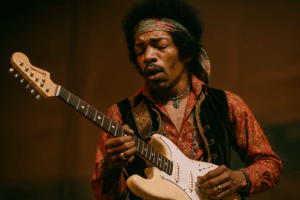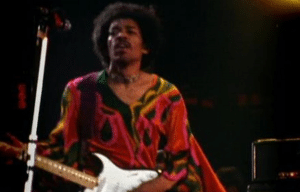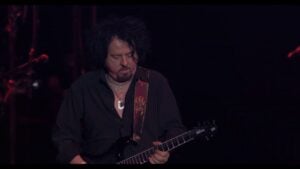This 1963 Hit Was So Powerful, Even the FBI Took Notice

via Smurfstools Oldies Music Time Machine / YouTube
In 1963, a seemingly simple rock song managed to do something few could imagine—it caught the attention of the FBI. The Kingsmen’s rendition of “Louie Louie,” a raw, garage-rock anthem defined by its slurred vocals and chaotic energy, was at once a cultural phenomenon and a national controversy. Parents were convinced the song contained obscene lyrics, while teenagers couldn’t get enough of its rebellious groove.
What followed was one of the strangest investigations in music history. The same qualities that made the song so electric—its grit, distortion, and mumbled delivery—also made it impossible for anyone, even federal agents, to decode. The FBI launched an inquiry into whether “Louie Louie” violated obscenity laws, setting off months of tape-spinning and lyric-analyzing in an effort to uncover words no one could quite hear.
In the end, the confusion only fueled the song’s legend. What began as a misunderstood party anthem turned into a cornerstone of rock ‘n’ roll history—one that symbolized youthful defiance, artistic freedom, and the power of music to unsettle authority.
From Richard Berry to The Kingsmen
Before The Kingsmen made it famous, “Louie Louie” had a long journey. The song was originally written and recorded by Richard Berry in 1956 as a B-side to another single. Berry’s version was a smooth, calypso-inspired tune about a sailor yearning to return to his lover, told through simple, rhythmic phrasing. When radio DJs began flipping the record and favoring “Louie Louie,” the song gained unexpected traction, prompting a 1961 re-release that earned Berry regional success.
By 1963, the song found new life in the hands of The Kingsmen, a band of young musicians from Portland, Oregon. Their take was rawer and far less polished than Berry’s version, filled with fuzzy guitars, offbeat timing, and lead singer Jack Ely’s famously unintelligible vocals. Initially dismissed as amateurish, the track soon caught fire on radio stations, driven by teenage enthusiasm and its infectious, primal beat.
Within a year, The Kingsmen’s “Louie Louie” sold over a million copies, becoming a national hit. But not everyone was celebrating. Parents, teachers, and moral watchdogs began to suspect that beneath those garbled lyrics lurked something far more scandalous.
A Three-Month Investigation Gone Nowhere
As rumors spread that “Louie Louie” contained hidden vulgarities, the uproar reached the federal level. The FBI decided to investigate whether the song’s lyrics violated laws against the interstate transportation of obscene material—a charge that could have serious consequences for the band and their label. What ensued was an investigation as bizarre as it was futile.
Agents analyzed the record in painstaking detail. They slowed it down, sped it up, and even played it backward in search of explicit language. Yet, Jack Ely’s muffled vocals—recorded while wearing braces and surrounded by loud instruments—left the lyrics hopelessly garbled. Despite all their resources, the Bureau couldn’t make sense of a single phrase.
Astonishingly, the investigators never thought to ask Ely himself what he was actually singing. Their official report ultimately admitted defeat, stating that they were “unable to interpret any of the wording in the record.” After three months of scrutiny, “Louie Louie” was cleared by sheer incomprehensibility.
The Song That Defined Rock Rebellion
The FBI may have failed to decipher “Louie Louie,” but the controversy cemented its place in rock history. The Kingsmen’s version became a rallying cry for teenage freedom—a song so raw and unpredictable that it seemed to embody the very essence of rebellion. Its rough edges inspired generations of musicians, from punk pioneers to garage rock revivalists, proving that energy and attitude could matter more than precision or polish.
Over time, “Louie Louie” earned a reputation as one of the most covered songs in history, with versions by everyone from The Beach Boys to Motorhead. What started as a misunderstood three-chord jam became a cultural touchstone, influencing entire genres while remaining timelessly fun.
Perhaps the greatest irony is that the song’s supposed obscenity turned out to be nothing more than a case of garbled lyrics. Yet, in the end, the misunderstanding made “Louie Louie” immortal—an anthem of noise, chaos, and freedom that even the FBI couldn’t silence.












